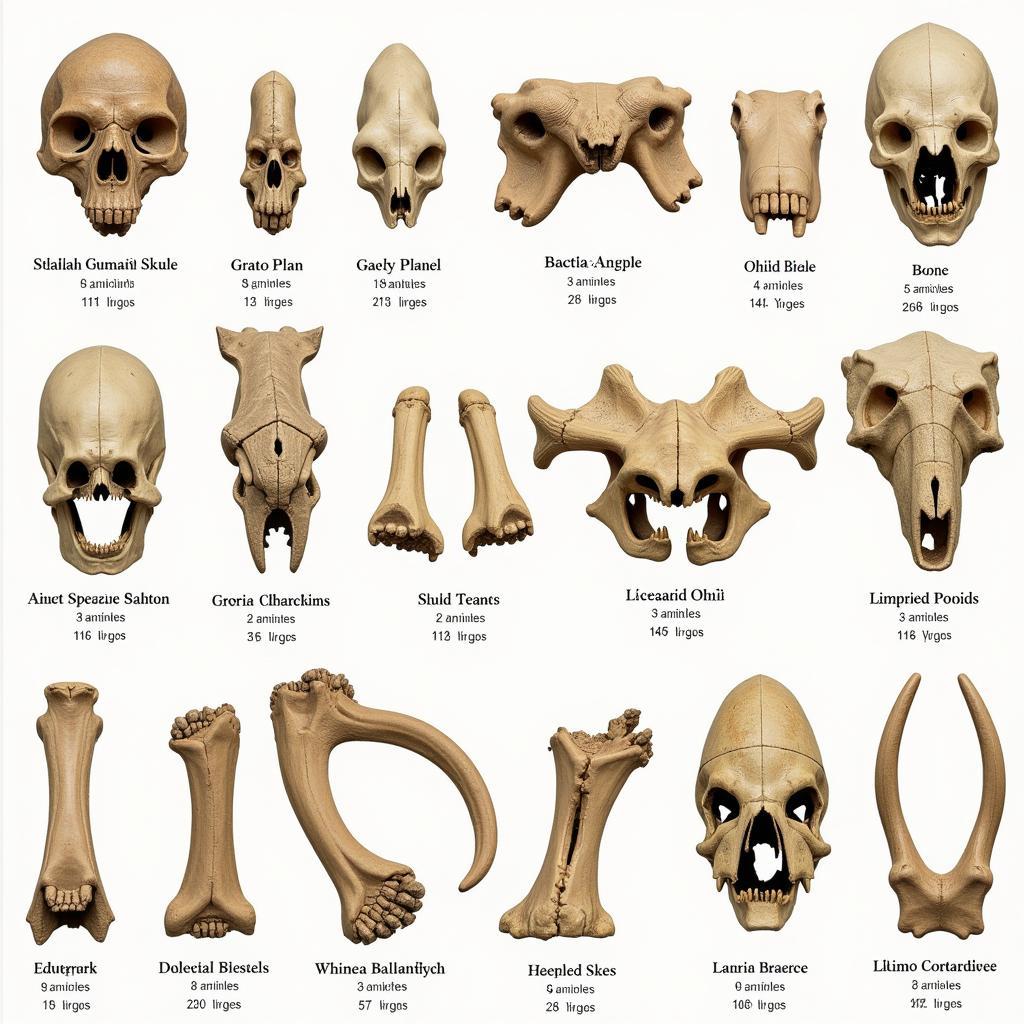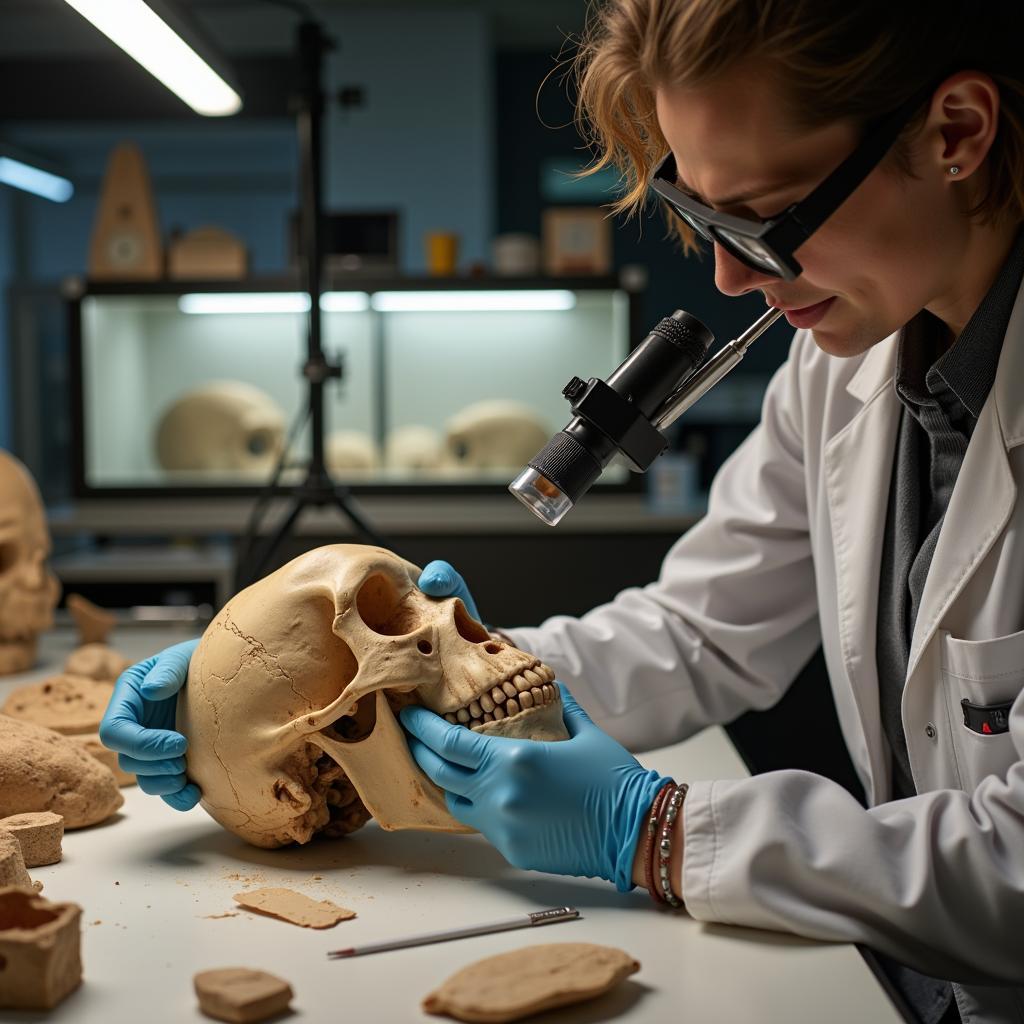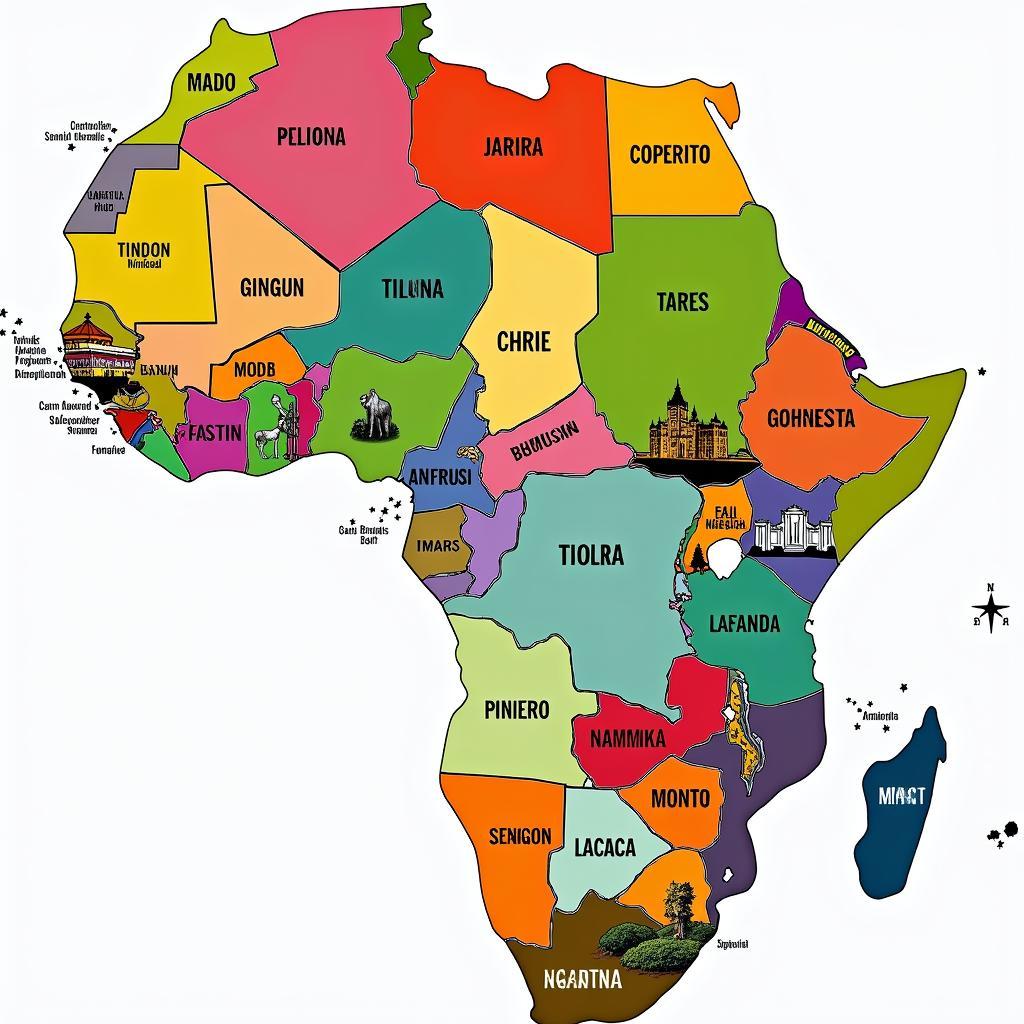African Ancestors of Human Beings: History Discussion
The African ancestors of human beings have a long and complex history, a topic that sparks endless fascination and discussion. From the earliest hominids to the emergence of Homo sapiens, the African continent holds the key to understanding our shared origins. This article delves into the captivating narrative of human evolution in Africa, exploring the scientific evidence, archaeological discoveries, and ongoing debates that shape our understanding of where we came from.
Unraveling the Cradle of Humankind: Early Hominid Discoveries
The story begins in Africa, where the earliest hominid fossils have been unearthed, solidifying the continent’s title as the “Cradle of Humankind.” These discoveries, often fragmented and incomplete, paint a picture of a diverse array of hominid species that walked the earth millions of years ago. From Ardipithecus ramidus to Australopithecus afarensis (famously represented by “Lucy”), these early hominids provide crucial insights into the evolutionary journey that ultimately led to us. Their bipedalism, the defining characteristic of hominids, marked a significant step in human evolution.
From the Rift Valley in East Africa to the caves of South Africa, paleoanthropologists continue to unearth remarkable fossils and artifacts that push back the timeline of human origins and challenge existing theories. These discoveries provide a glimpse into the lives of our ancient ancestors, their environments, and the challenges they faced.
 Early Hominid Fossils Discovered in Africa
Early Hominid Fossils Discovered in Africa
The Emergence of Homo Sapiens: African Ancestors of Human Beings History Discussion
The emergence of Homo sapiens in Africa is a pivotal chapter in the human story. While the precise timeline and specific location are still debated amongst scientists, the overwhelming evidence points to an African origin for our species. Genetic studies, combined with fossil evidence, suggest that Homo sapiens evolved in Africa roughly 300,000 years ago. From there, our ancestors gradually migrated across the globe, populating new continents and diversifying into the vibrant tapestry of human populations we see today. This understanding of our shared African ancestry has profound implications for our understanding of human diversity and the interconnectedness of all human beings.
One key area of discussion surrounding African ancestors of human beings history is the complex interplay of environmental factors, genetic mutations, and cultural adaptations that drove the evolution of Homo sapiens. Researchers are constantly seeking new evidence to refine our understanding of this crucial period in human history.
Debates and Discoveries: Shaping the Narrative of Human Origins
The study of human origins is a dynamic field, with new discoveries and scientific advancements constantly reshaping our understanding of the past. Debates continue around the precise evolutionary relationships between different hominid species, the timing and nature of Homo sapiens migrations, and the factors that contributed to the success of our species. These discussions, fueled by scientific rigor and a thirst for knowledge, are essential to piecing together the complex puzzle of human evolution.
“The study of our African ancestors is not simply a look into the past,” notes Dr. Anika Motiwa, a renowned paleoanthropologist from Kenya, “It’s a reflection on who we are today and a reminder of our shared human heritage.” This sentiment underscores the importance of continuing to explore and learn from the rich history of human evolution in Africa.
 Paleoanthropologist Examining Hominid Skull
Paleoanthropologist Examining Hominid Skull
Conclusion: The African Ancestry of Humanity
The African continent holds the key to understanding the origins of human beings. From the earliest hominids to the emergence of Homo sapiens, African Ancestors Of Human Beings History Discussion continues to captivate and inspire. As we continue to explore the fossil record and delve deeper into the genetic history of our species, we gain a deeper appreciation for the long and complex journey that has made us who we are today. Further research and discoveries promise to shed even more light on our shared African heritage.
FAQ
-
What is the evidence that humans originated in Africa? Fossil and genetic evidence strongly supports an African origin for Homo sapiens.
-
Who were the earliest hominids? Several species of early hominids, like Ardipithecus and Australopithecus, lived in Africa millions of years ago.
-
When did Homo sapiens evolve? Current evidence suggests Homo sapiens evolved in Africa around 300,000 years ago.
-
What is the “Out of Africa” theory? This theory proposes that Homo sapiens originated in Africa and then migrated to other continents.
-
Why is the study of human origins important? It helps us understand our place in the natural world and the shared history of all humankind.
-
How do scientists study human evolution? They use fossil discoveries, genetic analysis, and archaeological evidence.
-
What are some of the ongoing debates in the field? Debates continue about the precise timing and nature of human migrations and the relationships between different hominid species.
You might also be interested in reading more about specific hominid species, the tools and technologies used by our ancestors, and the cultural practices of early humans. Explore our other articles on the fascinating world of African history and culture.
When you need assistance, please contact us: Phone: +255768904061, Email: [email protected] Or visit us at: Mbarali DC Mawindi, Kangaga, Tanzania. We have a 24/7 customer service team.



